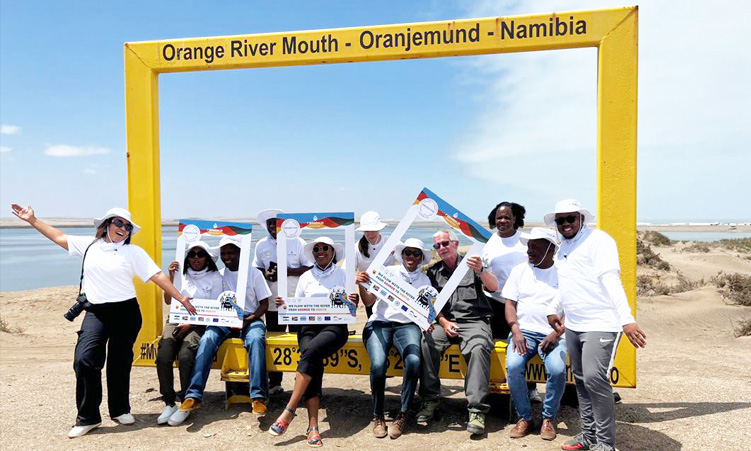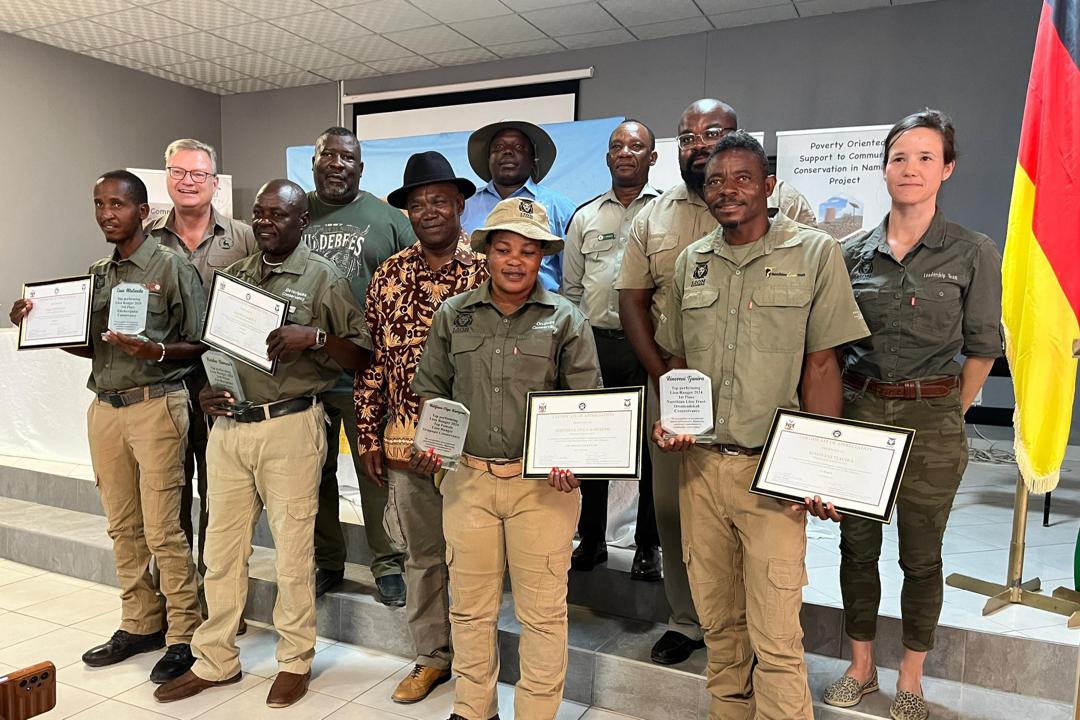The health of river ecosystems is becoming worse as water quality declines.
The main cause of damage to the rivers in the basin is pollution from untreated or poorly treated waste water, mining and industrial activities.
As towns, the population and industries grow, along with farming, rivers have become more polluted.
These were some of the findings of the Joint Basin Survey-3 (JBS) at Aussenkehr in the //Kharas region on Friday.
Orange-Senqu River Commission (Orasecom) project manager Vivane Kinyaga says the results of the assessment of aquatic ecosystem health from JBS 1, 2 and 3 show that the health of the river has declined.
Possible improvements depend on human and industrial activities, Kinyaga says.
The JBS is an aquatic health monitoring programme aimed at giving agriculture ministries a broader understanding of the state of aquatic ecosystems and habitats within the Orange-Senqu River Basin.
The survey is conducted every five years, with the first held in 2010.
The Orange-Senqu River Basin is a source of life as it supplies water to nearly 20 million people over four Southern African Development Community countries, namely Namibia, Lesotho, South Africa and Botswana.
The source is found in Lesotho’s Mokhotlong constituency, while the mouth runs to an area between Alaxander Bay and Oranjemund.
According to the survey, the current condition of the rivers ranges from being somewhat changed to severely impacted by human activities.
In some areas, certain parts of the ecosystem, like the fish population, have been severely damaged and are in a critical state.
The removal of plants along riverbanks, the spread of foreign plant species, and changes in the river’s natural flow have worsened the situation, further harming the river ecosystems.
As the water becomes more polluted, there is an increase in nutrients that encourage the growth of living creatures.
This means that in some places, the fish and other wildlife that depend on the river are struggling to survive.
As a result, the health of aquatic ecosystems is being harmed in several ways. Increased soil erosion causes sediment to build up in important river habitats.
National coordinator for the Integrated Catchment management in Lesotho Makomoreng Fanana spoke on the importance of conserving natural resources for society. Fanana says apart from climate change’s impact, harmful human behaviour plays a role in safeguarding the land and water.
German Gesellschaft für Internationale Zusammenarbeit (GIZ) Renoka awareness and behavioural change communicator Thothi Chimombe says more needs to be done to raise awareness of behavioural changes related to water preservation.
“Awareness is crucial for people to understand where the water they use comes from and where it flows to, the challenges and opportunities that comes with it and that building more dams is not the solution, conserving is the way forward,” she says.
Renoka is a Lesotho-based national movement dedicated to protecting and restoring land and water. It is funded by the European Union and the GIZ.
At the JBS launch, deputy executive director Petrus Nangolo, speaking on behalf of Ministry of Agriculture, Water, and Land Reform and executive director Ndiyakupi Nghituwanata, urged local authorities, mines, irrigation fields, households, and offices to protect the environment from pollution effects.
“Let us manage our waste water, improve sanitation facilities and control the return flows from our fields in efforts to maintaining and improving the water resource quality,” he said.
Nangolo said further engagements under the ministry will be hosted to create awareness of the negative impact pollution has on natural recourses.
Oranjemund Town Council acting chief executive Festus Nekayi highlighted the importance of ensuring that the Orange River mouth is clean and waste free.
At Oranjemund, the Orange River estuary flows into the Atlantic Ocean.
The rivers that flow south from Gauteng and the mining areas of North West province are the most polluted in the entire Orange-Senqu Basin. During the dry winter months, these rivers carry more sewage and industrial waste than natural water, which worsens the overall health of the river systems.
This calls for various intervention from both private and public stakeholders.
Namibia became part of the Orange-Senqu River Commission 24 years ago, after signing an agreement of cooperation on the sustainable use and management of this common water source.
Orasecom was established in November 2000 by the governments of Namibia, Lesotho, South Africa and Botswana to promote integrated water resources management and development within the basin.
Stay informed with The Namibian – your source for credible journalism. Get in-depth reporting and opinions for
only N$85 a month. Invest in journalism, invest in democracy –
Subscribe Now!






